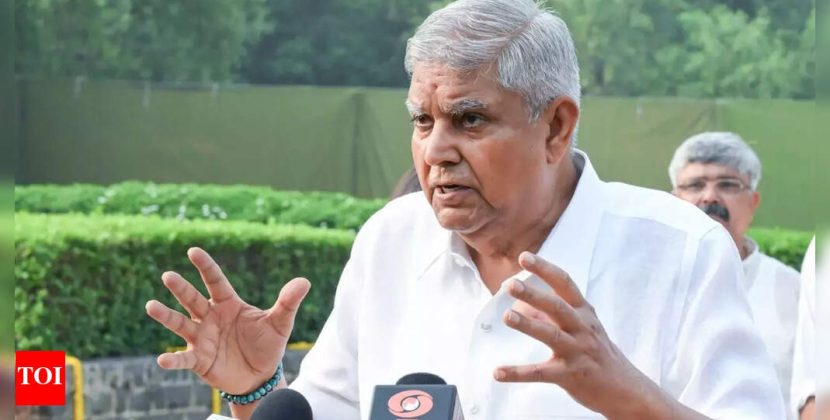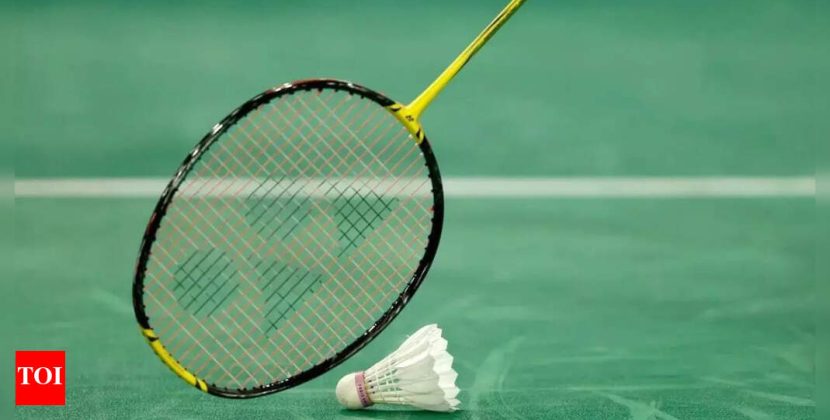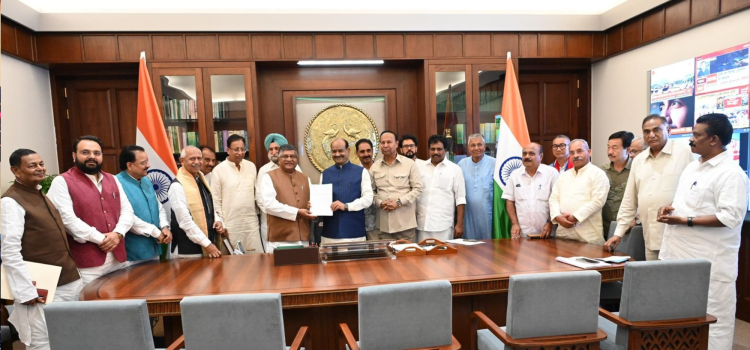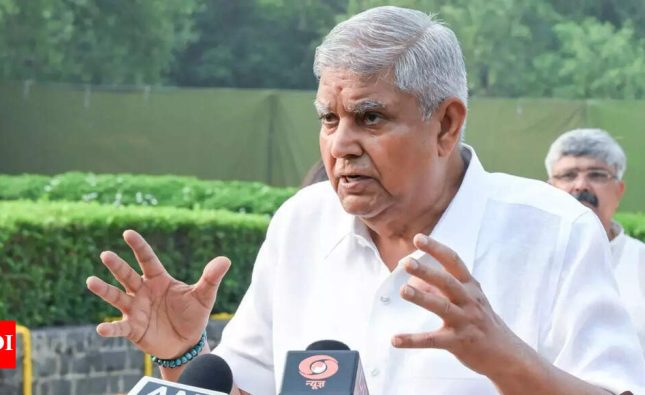
Parliamentary Affairs Minister Kiren Rijiju, after an all-party meeting yesterday, said that he has received signatures of over 100 MPs to bring an impeachment motion against Justice Yashwant Varma in the Monsoon Session of the Parliament. However, the Union Minister said that he cannot commit to a “timeline”.
Justice Yashwant Varma Case impeachment motion
According to a PTI report, over 200 MPs have submitted a motion in Parliament to impeach Justice Yashwant Varma – 145 Lok Sabha and 63 Rajya Sabha MPs. It has been signed by several prominent leaders, including Rahul Gandhi, Anurag Thakur, Ravi Shankar Prasad, Supriya Sule, and KC Venugopal.
With the impeachment process now in motion, let us take a look at how judges are impeached in India, and a recap of all previous instances where such proceedings were initiated against judges.
It is to be noted that no judge has been impeached so far in India’s history.
What is the process to impeach a judge in India?
The removal of judges is governed by the Judges Inquiry Act of 1968. Under this law, impeachment proceedings can begin if at least 100 Lok Sabha or 50 Rajya Sabha MPs submit a signed notice to the Speaker or the Chairman.
The Speaker or the Chairman may accept or reject the same after consulting with such people and reviewing the materials or evidence available.
If the motion is admitted, then a three-member committee should be jointly constituted by the Speaker or the Chairman to investigate it. It should include – a Supreme Court judge, a Chief Justice of a High Court, and a distinguished jurist. In addition to this, if motion is admitted in both Houses of the Parliament – Lok Sabha and Rajya Sabha – on the same day, then both the Speaker and the Chairman will jointly form the Committee.
The Committee, as per the Act, will then frame charges against the judge, which will serve as the basis for investigation. The judge at the centre of the proceedings will be given time to defend himself through a written statement. Following this, a report will be submitted to either the Speaker or the Chairman or both of them – whichever is applicable.
If the report finds the said judge guilty, then the motion for the judge’s removal will be taken up for consideration and debated.
The motion must be passed by a majority of the total members of that House, and by at least two-thirds of the members present and voting. If it is passed, the motion goes to the other House for approval. Once both Houses of Parliament approve the motion, it is sent to the President, who then issues the order to remove the judge.
In this case, the motion will either be passed by Lok Sabha Speaker Om Birla or Rajya Sabha Chairman Jagdeep Dhankar, before the constitution of a three-member Committee to investigate cash recovered from Justice Yashwant Varma’s house. If he is found guilty, and both Houses vote in favour of his impeachment, then President Droupadi Murmu will issue an order to remove him.
List of all judges who faced impeachment proceedings
1- Supreme Court judge Justice V Ramaswami became the first judge against whom impeachment proceedings took place in Independent India – 1991. He was found guilty of financial misappropriation and misconduct during his tenure as Chief Justice of the Punjab and Haryana High Court, but was not impeached. This was because members of the ruling party abstained from voting in the Lok Sabha, allowing him to remain in office until his retirement.
2- Former Chief Justice of the Sikkim High Court, PD Dinakaran, resigned even before an enquiry against him could be completed. He was accused of grabbing land and abusing his powers as the judge.
3- In 2011, Calcutta High Court judge Soumitra Sen was accused of misusing Rs 33.23 lakh that the court entrusted him with during a legal case. He resigned after the motion passed in the Rajya Sabha and before the Lok Sabha could vote.
4- Four years later, an MP High Court judge, SK Gangele, was accused of sexual harassment by a woman district judge. A motion was passed against him, and a committee was formed to investigate the allegations. However, the committee later gave him a clean chit.
5- Another High Court judge, CV Nagarjuna Reddy, faced allegations of caste-based abuse and misconduct. However, a motion to impeach him failed after several MPs withdrew their signatures.
6- In 2018, Supreme Court judge Deepak Misra, who later went on to become CJI, faced multiple allegations, including abuse of authority and judicial impropriety. The impeachment motion was rejected by the Rajya Sabha Chairman. It was the first time in the country’s history that an impeachment motion was moved against the Chief Justice of India.
7- Justice Shekhar Kumar Yadav, a sitting judge of the Allahabad High Court, is facing impeachment proceedings initiated by 55 Rajya Sabha MPs since 2024. He made statements which were widely perceived as hate speech and could incite communal harmony.
Justice Varma cash haul case
In March this year, a fire broke out at Justice Varma’s official residence in Delhi, and a large sum of charred, partially burnt cash was recovered from the outhouse storeroom. At the time, he was with the Delhi High Court. The Delhi Police Commissioner briefs Home Minister Amit Shah and Chief Justice of Delhi High Court DK Upadhyay about the cash recovery.
Following this, a Supreme Court Collegium recommended his transfer to his parent court – Allahabad High Court, and CJI Sanjiv Khanna constituted a three-member committee to investigate the cash haul.
Allahabad High Court Bar Association then staged a protest and demanded his impeachment. They also demanded an investigation into the case.
The inquiry committee submitted a 64-page report to the CJI after examining 55 witnesses and reviewing evidence. The report noted “strong inferential evidence” that Justice Varma had control over the storeroom and cash.
In May, Justice Varma rejected allegations and said that they are nothing but a well-planned “conspiracy” to malign him. He even called the CJI’s advice to tender a resignation “fundamentally unjust”.
As recorded in the report, Justice Varma stated, “Neither I nor any of my family members had any knowledge of cash, nor does it have any bearing or relation to me or my family. No such cash or currency was shown to my family members or staff who were present on that fateful night… We were neither shown nor handed over any sacks of burnt currency.”
“This room was generally utilised by all and sundry to store articles such as unused furniture, bottles, crockery, mattresses, used carpets, old speakers, garden implements, as well as CPWD material. This room is unlocked and accessible both from the official front gate as well as the back door of the staff quarters. It is disconnected from the main residence and is surely not a room in my house as has been portrayed and suggested in the article, which appeared in the Times of India and certain other news reports,” he added.
He further said that he was not in Delhi when the incident happened and said that neither he nor his family had ever placed cash inside the storeroom.
On July 17, he filed a writ petition in the apex court and challenged the inquiry report submitted to the CJI.
The Supreme Court today refused to list for urgent hearing a plea seeking the registration of an FIR against Allahabad High Court’s Justice Varma in connection with the cash discovery row. When the lawyer referred to him as just “Verma” without adding the word “Justice”, CJI lashed out at him, asking if he is his friend.
So, will Justice Varma become the first judge in India to be impeached? It’s still too early to say. Everything now depends on how the process moves forward in Parliament and the report submitted by the Committee, if constituted.











